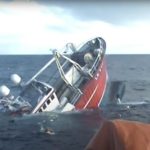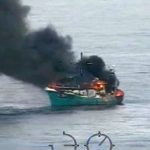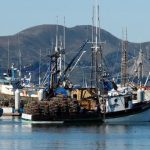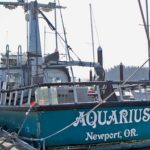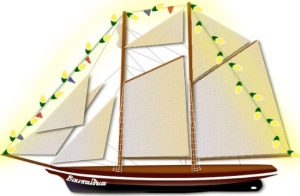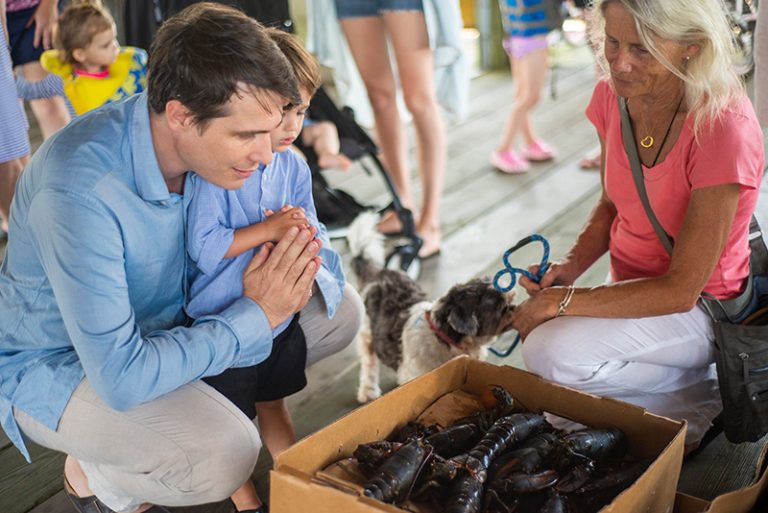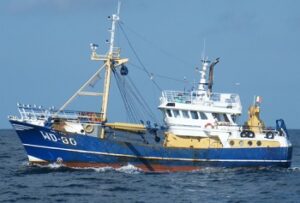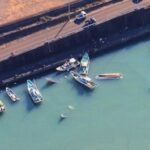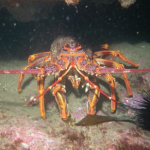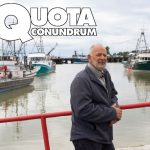Daily Archives: September 3, 2015
D.B. PLESCHNER: Recent Fishery Study Debunked by 1,400 Years of Data
 In an article in International Business Times (August 5, 2015), Aditya Tejas quoted researcher Malin Pinsky in his recently published paper that claims smaller, faster-growing fish like sardines and anchovies are more vulnerable to population collapses than larger fish. While it’s common these days to blame the ocean’s woes on overfishing, the truth is Pinsky’s conclusions don’t paint a complete picture. Fortunately, we do have an accurate picture and it’s definitely better than the proverbial thousand words. Read the rest here 20:56:09
In an article in International Business Times (August 5, 2015), Aditya Tejas quoted researcher Malin Pinsky in his recently published paper that claims smaller, faster-growing fish like sardines and anchovies are more vulnerable to population collapses than larger fish. While it’s common these days to blame the ocean’s woes on overfishing, the truth is Pinsky’s conclusions don’t paint a complete picture. Fortunately, we do have an accurate picture and it’s definitely better than the proverbial thousand words. Read the rest here 20:56:09
Being ignored at the Council or being publicly called an “asshole” by the Council Chairman doesn’t often make the news
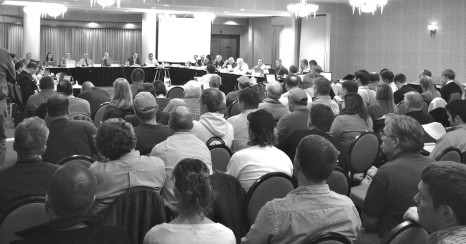 Catch Shares Take Toll Council Called To Task – At the April New England Fishery Management Council meeting in Mystic, Conn., a dozen university students from New England, members of fishing families, other fishing organizations, and community organizer Brett Tolley were in attendance. About a dozen people among this group wore orange “Who Fishes Matters” T-shirts. Continue reading An Open Letter to Tom Nies from a Fishing Family Member – Dear Mr. Nies, As Executive Director of the New England Fishery Management Council you should know how fishermen and the public experience the Council’s so-called “democratic process.” Read the letter here 18:10
Catch Shares Take Toll Council Called To Task – At the April New England Fishery Management Council meeting in Mystic, Conn., a dozen university students from New England, members of fishing families, other fishing organizations, and community organizer Brett Tolley were in attendance. About a dozen people among this group wore orange “Who Fishes Matters” T-shirts. Continue reading An Open Letter to Tom Nies from a Fishing Family Member – Dear Mr. Nies, As Executive Director of the New England Fishery Management Council you should know how fishermen and the public experience the Council’s so-called “democratic process.” Read the letter here 18:10
Four men charged in Anacortes crab poaching case
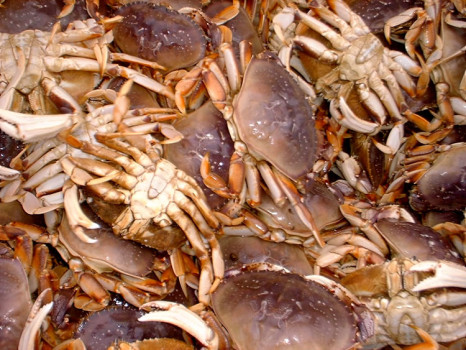 Four Anacortes men are facing criminal charges in an illegal crabbing case the state Department of Fish & Wildlife has been investigating for months. In mid-April, Fish & Wildlife authorities seized property believed to be connected to the case from multiple homes in the city. They are accused of organizing crab poaching in Similk Bay. According to a Fish & Wildlife probable cause record, 38-year-old Ricky Lee Guttormson, 24-year-old Hank Berent Knutson, 19-year-old Logan Allan Eby and 45-year-old James Emmett Montour were involved in harvesting and selling Dungeness crab to undercover officers. Read the rest here 17:07
Four Anacortes men are facing criminal charges in an illegal crabbing case the state Department of Fish & Wildlife has been investigating for months. In mid-April, Fish & Wildlife authorities seized property believed to be connected to the case from multiple homes in the city. They are accused of organizing crab poaching in Similk Bay. According to a Fish & Wildlife probable cause record, 38-year-old Ricky Lee Guttormson, 24-year-old Hank Berent Knutson, 19-year-old Logan Allan Eby and 45-year-old James Emmett Montour were involved in harvesting and selling Dungeness crab to undercover officers. Read the rest here 17:07
Fishing Vessel Sinks, Spills Oil in Alaska
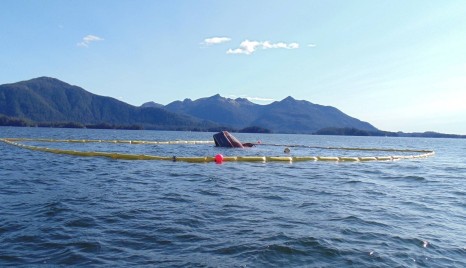 A 58-foot fishing vessel ran aground, sunk and spilled oil in Sitka, Alaska, according to the U.S. Coast Guard. No injuries have been reported, and there have been no confirmed reports of impacts to wildlife. The fishing vessel Pacific Venture, a 58-foot seiner, ran aground Tuesday evening and subsequently rolled over around 2 a.m. Wednesday, sinking in approximately 25 feet of water in vicinity of The Twins, roughly half a mile off the mouth of the Indian River in Sitka. Read the rest here 16:16
A 58-foot fishing vessel ran aground, sunk and spilled oil in Sitka, Alaska, according to the U.S. Coast Guard. No injuries have been reported, and there have been no confirmed reports of impacts to wildlife. The fishing vessel Pacific Venture, a 58-foot seiner, ran aground Tuesday evening and subsequently rolled over around 2 a.m. Wednesday, sinking in approximately 25 feet of water in vicinity of The Twins, roughly half a mile off the mouth of the Indian River in Sitka. Read the rest here 16:16
Coast Guard assists fishing vessel 50 miles from Portsmouth, NH
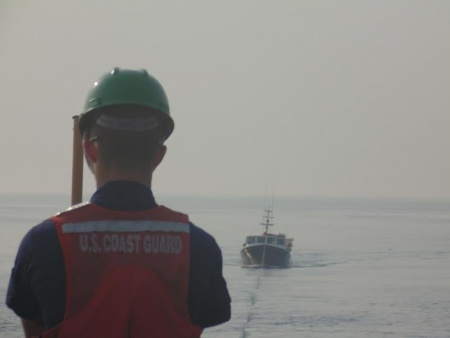 The crew of the Coast Guard Cutter Escanaba and a 47-foot Motor Life Boat crew from Station South Portland, Maine, rescued four people Thursday who were aboard a disabled fishing vessel 50 miles east of Portsmouth, New Hampshire. The captain of the 45-foot fishing vessel Danny Boy, homeported out of Portland, Maine, used a VHF-16 radio to contact watchstanders at Coast Guard Sector Northern New England Command Center Thursday at about 1:15 a.m. reporting Danny Boy was disabled, possibly due to a lack of fuel. Read the rest here 15:30
The crew of the Coast Guard Cutter Escanaba and a 47-foot Motor Life Boat crew from Station South Portland, Maine, rescued four people Thursday who were aboard a disabled fishing vessel 50 miles east of Portsmouth, New Hampshire. The captain of the 45-foot fishing vessel Danny Boy, homeported out of Portland, Maine, used a VHF-16 radio to contact watchstanders at Coast Guard Sector Northern New England Command Center Thursday at about 1:15 a.m. reporting Danny Boy was disabled, possibly due to a lack of fuel. Read the rest here 15:30
Bad Fraser River sockeye run has salmon watchers worried
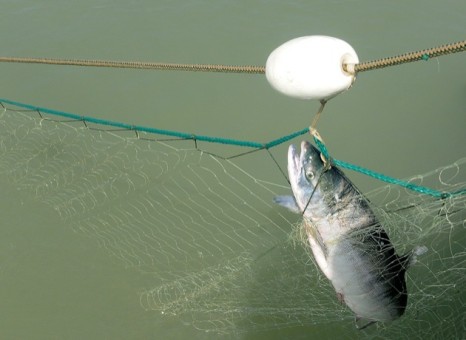 The latest estimate pegs the run size at 2.4 million salmon, barely a third of the 6.8 million mid-range projection of fishery managers. Commercial fishing that was anticipated for August never happened because of the low returns. About 150,000 sockeye have been taken in First Nations food fisheries. “We don’t have the abundance we were expecting,” said Jennifer Nener, Lower Fraser area director for DFO. Last summer, 1.7 million late-run sockeye that were counted as having gone upriver never reached the spawning beds and Taylor fears a repeat is in store. Read the rest here 14:52
The latest estimate pegs the run size at 2.4 million salmon, barely a third of the 6.8 million mid-range projection of fishery managers. Commercial fishing that was anticipated for August never happened because of the low returns. About 150,000 sockeye have been taken in First Nations food fisheries. “We don’t have the abundance we were expecting,” said Jennifer Nener, Lower Fraser area director for DFO. Last summer, 1.7 million late-run sockeye that were counted as having gone upriver never reached the spawning beds and Taylor fears a repeat is in store. Read the rest here 14:52
Nova Scotia lobster, or ‘Boston Lobster’ in China, could be rebranded
 With Canadian lobster sales in China at record levels, a major Nova Scotia exporter is trying rebrand the tasty crustacean to overcome its generic name in China: “Boston lobster.” “We all know Canadian lobster is better quality than lobster from the U.S. side,” says Jack Liu, of Zoneco, a large Chinese seafood company that has bought into the Nova Scotia lobster industry. “It’s stronger, the meat is fuller. The yield is high, there is more meat inside. “The first company in the Chinese market was American. “Boston lobster” has, as a result,,, Read the rest here 12:51
With Canadian lobster sales in China at record levels, a major Nova Scotia exporter is trying rebrand the tasty crustacean to overcome its generic name in China: “Boston lobster.” “We all know Canadian lobster is better quality than lobster from the U.S. side,” says Jack Liu, of Zoneco, a large Chinese seafood company that has bought into the Nova Scotia lobster industry. “It’s stronger, the meat is fuller. The yield is high, there is more meat inside. “The first company in the Chinese market was American. “Boston lobster” has, as a result,,, Read the rest here 12:51
A Fish Jizzed on President Obama’s Shoes
As part of his visit to Alaska, Barack Obama made a trip to the far-north fishing village of Dillingham, where a salmon squirted “milt” onto his shoes. That’s a “sperm-containing fluid.” Yup, that fish essentially splooged all over the President’s shoes. While getting a demo from a local fisherwoman, Obama informed the reporters tagging along that something had landed on his shoes and noted that, “Generally you don’t want fish spawning on your feet.” He said his guide told him that the fish was just “happy to see me.” Take it down a notch or two, fish. link 12:02
Pew threatens to get Pacific bluefin tuna banned from international trading
 An international body that monitors fisheries in most of the Pacific Ocean ended a meeting in Japan on Thursday without agreement on fresh measures to protect the dwindling bluefin tuna. The lack of a required three-quarters quorum prevented any agreement, since representatives from China, the Cook Islands, Vanuatu and the Philippines did not attend. So any decisions on new long-term measures were pushed back to 2016, the Japanese Fisheries Agency said. Further inaction would likely prompt efforts by conservationists to get Pacific bluefin tuna banned from international trading, said a statement by The Pew Charitable Trusts, Read the rest here 11:27
An international body that monitors fisheries in most of the Pacific Ocean ended a meeting in Japan on Thursday without agreement on fresh measures to protect the dwindling bluefin tuna. The lack of a required three-quarters quorum prevented any agreement, since representatives from China, the Cook Islands, Vanuatu and the Philippines did not attend. So any decisions on new long-term measures were pushed back to 2016, the Japanese Fisheries Agency said. Further inaction would likely prompt efforts by conservationists to get Pacific bluefin tuna banned from international trading, said a statement by The Pew Charitable Trusts, Read the rest here 11:27
More division on Large Vessel Protected Area (LVPA) Amendment
 The US National Marine Fisheries Service proposal to allow large US flagged longliners to fish within certain boundaries of the waters now limited to alia fishing has attracted both support and opposition. NMFS is accepting public comments until Sept. 24th on the Western Pacific Fishery Management Council’s recommendation to allow, Local longline vessel owner Edgar Feliciano says he supports amending the LVPA so that U.S. flagged longline vessels, owned and operated in American Samoa can deliver their catch to the local canneries. Read the rest here 10:24
The US National Marine Fisheries Service proposal to allow large US flagged longliners to fish within certain boundaries of the waters now limited to alia fishing has attracted both support and opposition. NMFS is accepting public comments until Sept. 24th on the Western Pacific Fishery Management Council’s recommendation to allow, Local longline vessel owner Edgar Feliciano says he supports amending the LVPA so that U.S. flagged longline vessels, owned and operated in American Samoa can deliver their catch to the local canneries. Read the rest here 10:24
Battle Over Alaska’s Bristol Bay Pits Salmon Against Gold
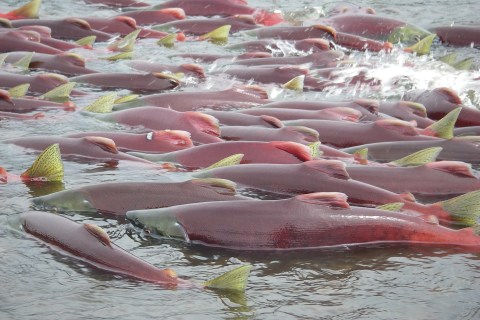 Commercial fisherman, native Alaskans and environmentalist in Bristol Bay have banded together to fight the building of the mine. Bristol Bay provides 40% of America’s wild caught seafood and $2 billion dollars in commercial fishing. It’s also the single greatest sockeye salmon fishery in the world. Right now, much of the land is protected by either the federal or state governments, but not the one piece where the potential mine would sit. Read the rest here 09:44
Commercial fisherman, native Alaskans and environmentalist in Bristol Bay have banded together to fight the building of the mine. Bristol Bay provides 40% of America’s wild caught seafood and $2 billion dollars in commercial fishing. It’s also the single greatest sockeye salmon fishery in the world. Right now, much of the land is protected by either the federal or state governments, but not the one piece where the potential mine would sit. Read the rest here 09:44
NMFS issues overfishing notice for 4 northwest salmon stocks, and North Pacific swordfish
 The federal agency in charge of managing fisheries has ruled four stocks of Pacific Northwest salmon are being overfished. The National Marine Fisheries Service and the Department of Commerce on Wednesday posted a notice in the Federal Register of the excessive fishing pressures on Chinook and Coho salmon in the Columbia River Basin and along the Washington coast. The notice, which included overfishing findings for , is meant to alert fishery managers that fishing pressures are driving salmon populations down. Read the rest here 09:10
The federal agency in charge of managing fisheries has ruled four stocks of Pacific Northwest salmon are being overfished. The National Marine Fisheries Service and the Department of Commerce on Wednesday posted a notice in the Federal Register of the excessive fishing pressures on Chinook and Coho salmon in the Columbia River Basin and along the Washington coast. The notice, which included overfishing findings for , is meant to alert fishery managers that fishing pressures are driving salmon populations down. Read the rest here 09:10
Disburse disaster aid to all active fishermen – Jan Margeson, Brewster
 A typical small-boat fisherman from Cape Cod — or anywhere in the state for that matter — has more than navigating around the tides and the wind to contend with in today’s complicated regulatory world and in the face of a changing ocean. There’s crew to pay to sustain viable communities, gear and fuel to buy to support a coastal economy, and safety equipment to update to make sure they are prepared in any emergency. Starting in October, these family fishermen will have to undertake a new added expense: paying for who count the fish they harvest and those they have to throw back. Read the rest here 08:38
A typical small-boat fisherman from Cape Cod — or anywhere in the state for that matter — has more than navigating around the tides and the wind to contend with in today’s complicated regulatory world and in the face of a changing ocean. There’s crew to pay to sustain viable communities, gear and fuel to buy to support a coastal economy, and safety equipment to update to make sure they are prepared in any emergency. Starting in October, these family fishermen will have to undertake a new added expense: paying for who count the fish they harvest and those they have to throw back. Read the rest here 08:38

































